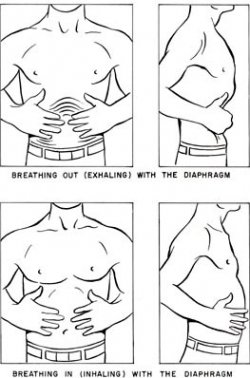WHAT TO DO
First of all you will need to listen to yourself. Consciously listen to what you say.
FINDING YOUR FAULTS
Do your statement always make sense? Are you saying exactly what you mean to say? Are you using the dreaded 'er' and 'um'? Is your voice too high-pitched for others' comfort? Do you gabble? Do you speak slowly? Are you fluent, or hesitant? Are you boring in your speech patterns? Do you answer questions precisely?
WORKING ALOUD
Having listened carefully, you can identify the problem or problems and being to work on them in the privacy of your own home, aloud. You must listen to yourself becoming better. Inside your head will not help at all. You must listen to yourself as others hear you, for only then will you improve. You really don't need expensive equipments to listen to yourself. Of course if you have recording equipment at home like your mobile phone, after speaking playing back your speech can be a salutary experience! Re-recording and listening over and over again will be very helpful.
MAKING CHANGES
It is not easy to change the way you sound because your voice is so much part of you that you may not wish to sound any different. But consider this; there could be something in that litany of speakers' fault that does apply to you and your speech mannerisms.
If you do decide to change, to improve, do it gradually, until the new sound becomes part of the natural 'you'. Heaven forbid that you should sound elocutionary, because in all public speaking the goal is to sound natural and spontaneous.
Nerves
After all the listening you still feel nervous? Let's do something about that too, because if you are to give your best you must not appear nervous, you can be nervous inside, but you must seem confident to your audience, large or small. This is where deep breathing is called for, deep breaths from your diaphragm.
Don't gulp air into your lungs, raising your shoulders for that will result in shallow breathing that simply adds your panic. When you have expanded your lungs properly that extra oxygen will calm the fluttering feeling in you stomach and your voice will stop shaking. You will feel much better.
BREATHING
we breath automatically; but for speaking in the public you need to learn to breath in a particular way. This can be achieved by some simple exercise that will expand your lungs and allow you to take in more oxygen than you might do normally. This will settle your nerves. More important, it will give you extra voice power, extra control and extra projection. You will need that when speaking for any lengthy time in a large room. Use your diaphragm as a singer does to strengthen the muscles around it to hold the windpipes column of air as it presses against the vocal chords, Daily stand erect, with your hands meeting across your diaphragm, fingers just touching breath in slowly and deeply, forcing your finger apart. Hold your breath for as long as you can without discomfort. Allow the breath out slowly and evenly. Do this up t o 20 times a day and soon you will begin to notice a great improvement in the length of time you can sustain this outflow of breath.
YOUR VOICE
Now the voice is so much a part of you and your speech that it must be a voice you can produce well. You must also like the times of your voice. It is the musical instrument each of us carries about with us and it is possible to improve it.
Find a passage you would like to read aloud. Do that without being too dramatic in your interpretation, give full worth to each word and try to read it with good sense, as the writer would like you to do. Either record the passage or listen with one ear firmly blocked out.
If you do not like the sound of your voice, accept that but also accept the fact that you can do something about it. If it is too soft, increase volume; if it is too loud, decrease the volume, if the timbre is too high, take some time to exercise your voice at lower registers. After much practice you will discover to your delight that this tone is now normal.
Really this improvement is up to you, for only you can get your speaking voice the way you want it. It will take time and it will take some effort, but like so many things the reward will be worth it. You would notice the difference and be pleased by it.
Checklist: WHAT TO DO
- Listen to yourself
- Work on the problem identified
- Conquer your nerves
- Improve your breathing
- Avoid wrong breathing
- Improve your voice
- Exercise to lower your voice tone.
Prepare for by @ciocolony






Very informative post, just loved it. Keep up the good work.
Thanks @anikaa for the encouragement
You are most welcome
Impressive write up. Your citation is not included
Didnt show up in time,buh was still here,keep it up @diamondrich
Thanks my padi.. always available to encourage you
Tnx for visiting
This is great piece for stage frighters like me. Self confidence matters.
Congratulations @ciocolony! You have completed some achievement on Steemit and have been rewarded with new badge(s) :
Click on any badge to view your own Board of Honor on SteemitBoard.
For more information about SteemitBoard, click here
If you no longer want to receive notifications, reply to this comment with the word
STOP